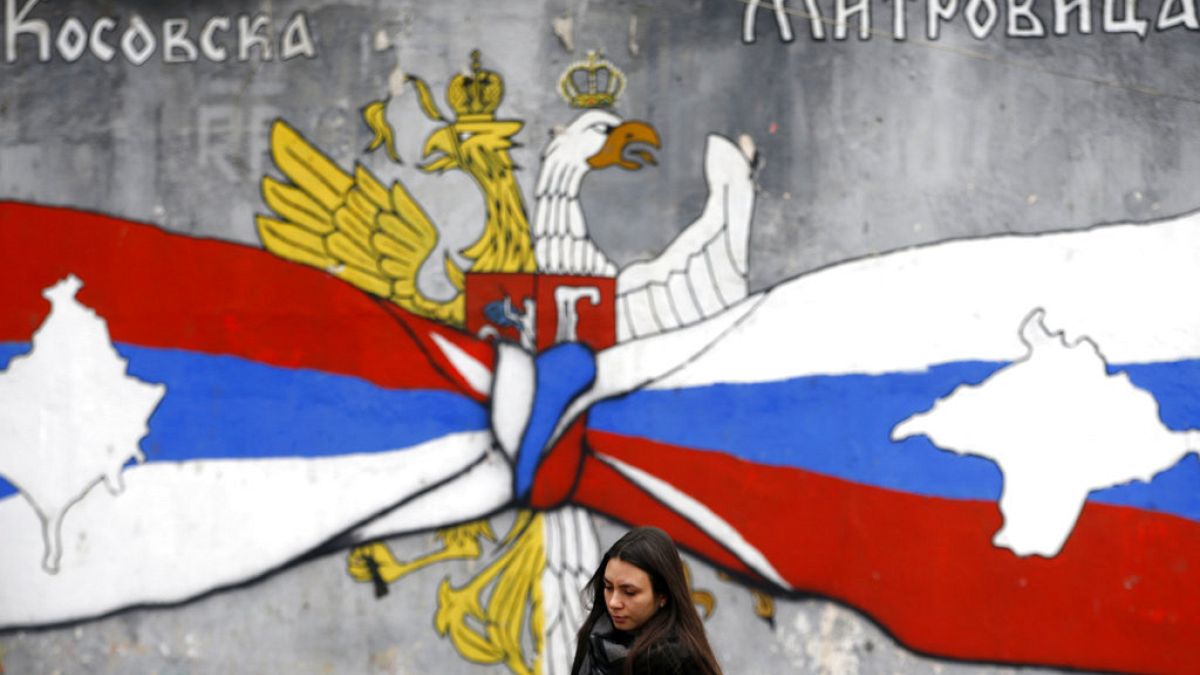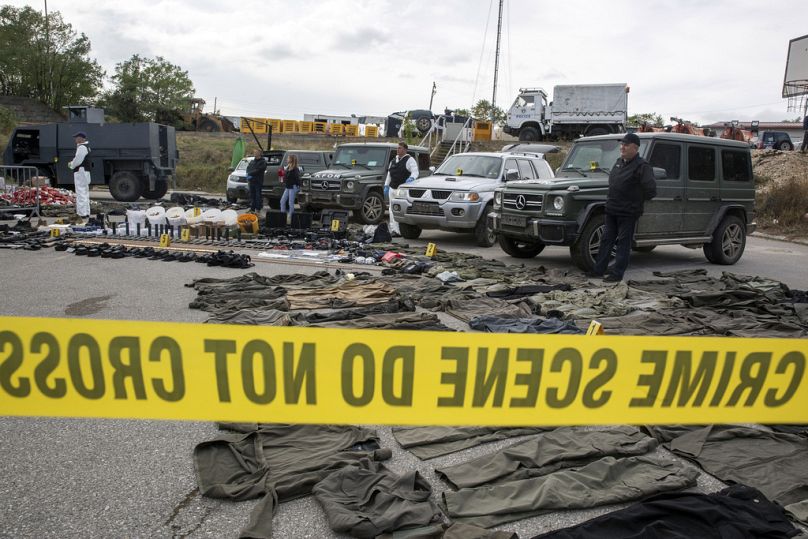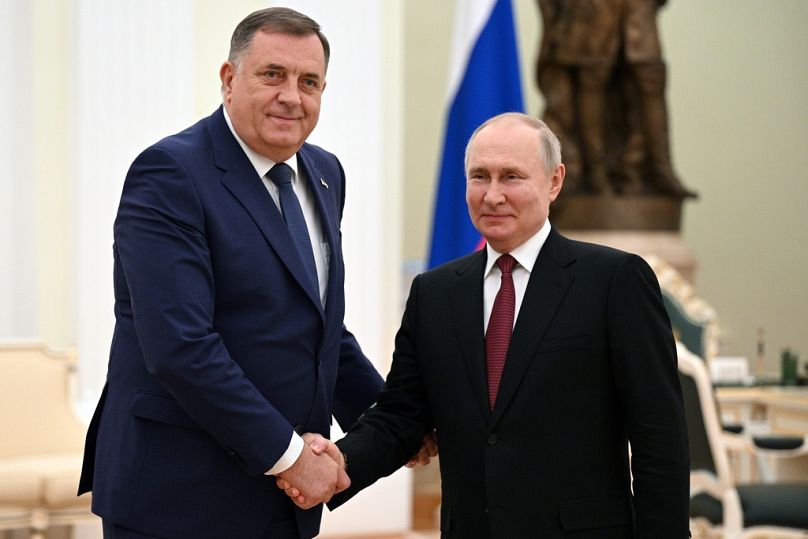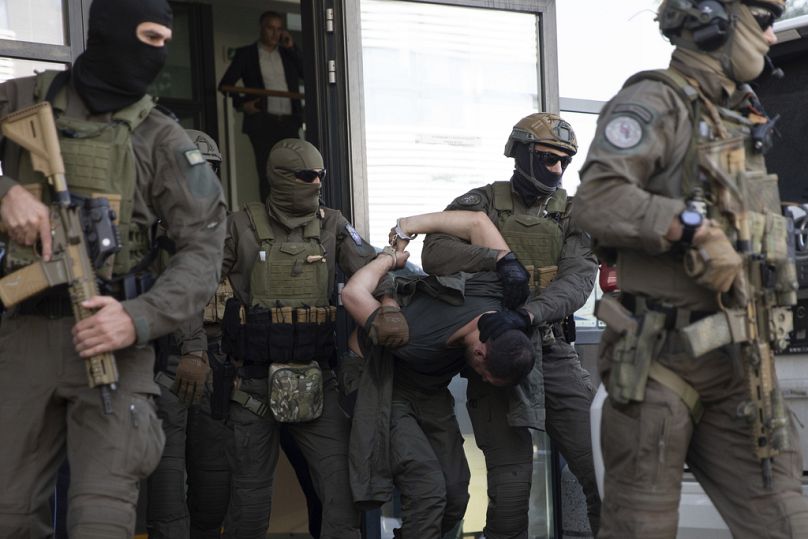A recent siege at a monastery in Kosovo saw Moscow take another chance to defend Serbia.
A shocking incident in Kosovo this weekend saw 30 armed men take refuge in a monastery after the killing of a police officer.
During the ensuing siege, multiple assailants - apparently "masked and equipped with heavy weapons" - were killed in "several battles" with Kosovo police, according to the authorities.
Kosovo's president, Vjosa Osmani, claimed the violence could be traced back to neighbouring Serbia, which refuses to recognise its independence.
"These attacks prove, if it was still necessary, the destabilising power of criminal gangs, organised by Serbia, who have been destabilising Kosovo and the region for a long time,” she said.
Serbia, meanwhile, has distanced itself from the attack, but it has been defended by none other than Russia, which blamed the recent violence and heated rhetoric in the region squarely on Kosovo.
"There is no doubt the bloodshed [on Sunday] is a direct and immediate consequence of the policy of inciting conflict of the so-called Prime Minister Albin Kurti", said the Russian Foreign Ministry.
It warned any attempt to escalate the situation would be likely to lead "the entire Balkan region over a dangerous precipice".
According to Moscow, the Kosovo police "have long since discredited themselves through systematic punitive acts against the Serbian community".
They have tried to "push Serbs out of Kosovo" via the deployment of "heavily armed special forces" in "non-Albanian areas", it continued.
"There is a direct threat of a return to the ethnic cleansing practised by Kosovo Albanian extremists."
Whatever the truth or otherwise of these statements, they are indicative that despite its relatively small size and its non-membership of major international institutions, Moscow still views Serbia as an important European ally.
Power plays
One of Russia's key strategic priorities outside Ukraine is to disrupt any further political and military consolidation in Europe, whether under the auspices of NATO or the EU.
The potential "Europeanisation" of Ukraine is one of several dubious justifications the Kremlin has cited for its invasion.
That's despite the fact the war is widely seen as having helped spur the EU into formally granting Ukraine candidate status in June last year – along with Moldova, whose breakaway Transnistria region is claimed by Russia.
Serbia and the wider non-EU Balkans, however, present at least one opportunity to shore up a few European partners for Russia. And the more inflamed Balkan tensions are, the more distracted and stretched Ukraine's European allies will become.
Russia has fiercely backed the leader of the Bosnian Serbs, Milorad Dodik, who is agitating for the sub-state entity Republika Srpska to unilaterally separate itself from Bosnia and Herzegovina and unite with Serbia proper.
Were the proposal to be put into practice, it would be in direct contravention of the US-brokered 1995 agreement that ended the genocidal 1992-95 Bosnian war.
Dodik, who is facing potential legal consequences for his secessionist activities, has advocated for the establishment of a standalone army in the interests of ethnic Serbs living outside Serbia.
He has also called for Bosnia to join the BRICS political bloc instead of the EU.
This is seen by observers as an extremely unlikely prospect, not least since Serbia has been an EU membership candidate since 2012. Yet the path toward accession has stalled.
In its most recent annual summary, the European Council insisted Belgrade's progress on fundamental rights and the status of Kosovo remain crucial – and pointed specifically to concerns thrown up by Serbia's relationship with Russia.
"In the context of Russia's war of aggression against Ukraine, the Council expects Serbia to show unequivocal commitment to the EU, to stand up for our common principles and values and to communicate objectively on the EU and actively engage in preventing disinformation and foreign information manipulation," the statement read.
"The Council also deeply regrets Serbia's backsliding in alignment with the EU common foreign and security policy, notably the non-alignment with EU sanctions against Russia and Belarus."
Across non-EU states in eastern Europe, scorning the idea of EU membership is a consistent point of pride for pro-Russian and right-wing nationalist politicians.
As Serbian and Bosnian Serb hardliners rail against Brussels's requirements for joining the club, they too are increasingly pointing to Russia's support and protection as an alternative.
The implications of this Moscow-Belgrade alignment have hardly escaped the West, and in recent months, the issue has been forced onto the discussion table time and again.
Things hit a new low when the US sanctioned Aleksandar Vulin, currently head of Serbia's intelligence agency, for facilitating Russia's "malign activities" in the region.
“He has used his public positions to support Russia, facilitating Russia’s malign activities that degrade the security and stability of the Western Balkans and providing Russia a platform to further its influence in the region,” the US Treasury Department said in a statement.
Not since the wars of the 1990s has a Serbian official been sanctioned while in office – and not since then has the balance of power and security in the western Balkans felt so fragile.



